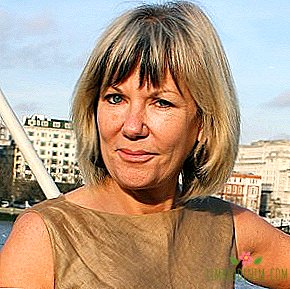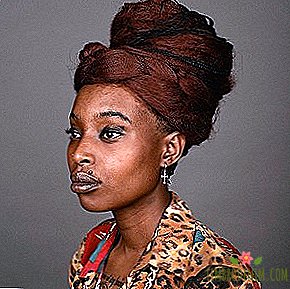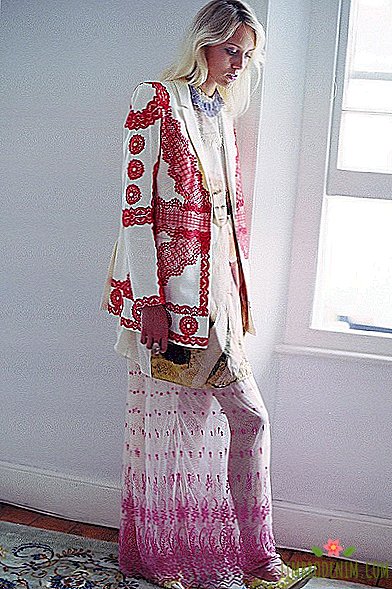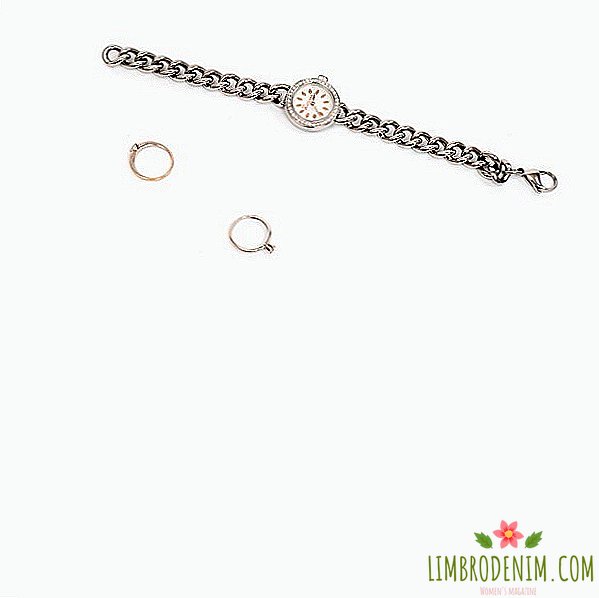Director and superwoman Jude Kelly on how to step into a bright future
Jude Kelly has so many different regalia, that talking to her is even a little scary. She is a renowned theater director and culture manager, winner of two Laurence Olivier awards, the Order of the British Empire and seventeen honorary doctoral degrees. Until recently, Kelly ran the Southbank Center in London, but decided to quit to develop her project Women of the World (WOW), an international festival dedicated to women's issues and achievements. We met Jude a few hours before her lecture, organized by the British Council at the Garage Museum of Contemporary Art, and talked about women in art and business, solidarity and motherhood, impostor syndrome and attitude to age.

Then and now
My grandmother had fourteen children, she left school when she was twelve. Can you imagine how much has changed in just three generations? When I think about it, I understand that I cannot sit and rejoice, I must do something so that progress does not stop. In the future, gender distribution of roles will cease to exist - I am absolutely sure of that.
Who knows, maybe my life would have been different if I was born a man. It is very difficult to reduce my biography to gender, there are many other factors that influenced what I became. I am not just a woman - I am a white heterosexual woman from North England, I am short, after all. All this somehow influenced me. In many ways, my career is a combination of favorable circumstances, and I understand that many women did not have such circumstances. But if you have enough energy and confidence in your abilities, you can transfer your luck further: having achieved success, you open the doors to others.
Women should support women. We are told that we are all the time on the playground: if a boy chooses you, you are special. If you're smart, you're an exception, because the other girls are stupid. Boys are taught to work in a team, they are taught healthy competition, and we are unhealthy. It seems to me that it is very important to get rid of this: women should help other women, hire them to work, and stand up for each other.
We are afraid to just be honest and spend a lot of energy wrapping up our negative response in a pretty package.
The most difficult thing is to deal with contradictory attitudes. Now I’ll give an example related to the #MeToo campaign. At a very tender age, at nine or ten years old, many girls face such a situation: a boy comes up to them and offers to “become his girlfriend”, and he is often immediately told “no”. The boy is terribly offended and tries to compensate for his offense by starting to get a girl - and sometimes even openly persecute her along with his friends.
Men are taught that failure is a disgrace, a defeat, so they react most acutely. And girls have to learn to be "diplomatic" - instead of "no," say: "Thank you, I really like you, but right now I am not very interested, I can not," - and so on. We are afraid to just be honest and spend a lot of energy wrapping up our negative response in a nice package - as a result, we get a very confusing, incomprehensible message that does not help anyone. It’s the same when you go to your boss to ask for an increase: you’re kind of saying you want more money, but you’re showing you don’t want to seem obsessive or overly ambitious, and end up with nothing.
Career and motherhood
I recently announced that I was leaving the post of art director of the Southbank Center to attend the Women of the World festival, and in the newspapers they wrote something like "The most influential woman in the art world is leaving her post." This is very flattering, but notice that the word "woman" is present here. This well shows how differently they treat women and male leaders.
While I was a theater director and managed cultural projects, I was constantly confronted with the notion that all museums, plays, novels and paintings were created by men. Today this prejudice is not so strong, but it still exists: the very concept of "genius" is strongly associated with a male figure. Therefore, as I told at TED, I would like to reconsider my attitude to art and make sure that all stories are heard.
I constantly struggled with the impostor syndrome, especially when I was very young. When I went into a room full of men older and taller than me, I had to spend twice as much energy for someone to notice me. When I began to manage the theater, I was twenty-two, and I had long blond hair (then stereotypes about blondes were still alive) - I was constantly mistaken for a secretary and asked to call my boss. In such situations, it is advised to "pretend until it becomes true" - but even if you are good at it, you do not cease to feel like a liar.
Ted-tok jude kelly
It seems to me that this is characteristic of all creative people: no one can fully correspond to the image of "a true artist." I think that it is more difficult for women in such situations, because from childhood they are taught to retreat: to be polite, in no case show aggression, smile, put the interests of other people above their own. Even the word “ambitious” - it seems that the situation with it is the same in Russia - has negative connotations with respect to women. This is not just education - it's training: we are taught to be obedient. Therefore, when a woman tries to resist it and to be strong, deep inside she doubts whether she is a good person at all or not.
Even more difficult when you have children: you must comply not only with the standard of a "good woman", but also with the image of a "good mother." The one who sacrifices herself for the sake of children spends a lot of time at home, cooking. I have two adult children and had four pregnancies — one ended in miscarriage, and the second son died — so I spent a lot of time with the babies and in my thoughts about them. If my ex-husband were not a great father and did not raise children with me, I would not have been able to build such a career. Nevertheless, I often felt guilty - for not meeting children at school, not collecting their lunches every day. We were told that a good mother should do this - and my own mother, by the way, did all this for me and my three sisters.
It is difficult to overestimate the role of the father who supports the girls and convinces them that they can do anything. My father was just that - and I met quite a few women who, with the support of their fathers, helped me gain confidence in adulthood. Under the conditions of patriarchy, support from mom is something that goes without saying, but when you receive a charge of confidence from your father, this is something special. I always say to men: if you want your daughters to succeed, trust them no less than your sons.
Women of the World and role models
I started the WOW festival eight years ago — before the attack on Malala, before the abductions of Boko Haram, before the Weinstein scandal. Then many girls denied feminism, because they believed that there was nothing to fight for, all problems were solved. At the same time, women were still torn between children and work, received less, did all the housework and suffered from it. It was just necessary to recognize that the problems were not in them, but in the unjust structure of society. I wanted to organize a festival to pay attention to the achievements of women and at the same time discuss plans for the future.
To participate in the WOW is not necessary to consider themselves a feminist: the festival is open to all. I think that’s why he has become so popular: we are talking about very different topics, from weaving braids to post-rape therapy. We have a section on engineering, art, activism, law - all so that participants can feel that there is no single model, no "good" and "bad" way to be a woman. For eight years, we have spent forty-three festivals in different countries, and wherever I go - to Kathmandu, to Baltimore or to Rio - girls and adult women understand that they have many wonderful opportunities, but there are also limitations that draw way down. It seems to me that now there is much more solidarity in the world than a few years ago: no one says: “We are already doing well in the West, and the rest - well, good luck to them.”
I am for an intersectional approach - I am very upset when white heterosexual women from non-poor families are separated from others and they say: "We can be successful anyway, we are not going to pay attention to your problems." It is not fair: we can put a couple of women in the places that were previously occupied by privileged men, but this will not be real equality, but fiction. I love men and I think that they will benefit from the struggle against patriarchy. In Britain, the most frequent cause of death among men younger than fifty years is suicide: I am sure that this is due to the fact that men consider it shameful to discuss their feelings, they are afraid to appear weak, they cannot cope with the burden of expectations.
We are all different animals, some instinctively like each other, but others do not, and nothing can be done about it. I, for example, koala and pretty other marsupial
I have many examples to follow - for example, Angela Davis or one of my favorite singers, k.d. lang - and this is not only artists or theater directors, but also women who have achieved heights in their corporate careers. One can not assume that one job, such as art or politics, is more important than another - it is the same as saying that a turtle is better than antelope.
I try not to read comments in social networks, this is an unhealthy practice. It is important to remember that many people are hurt or upset on their own, regardless of you. And if they write ugly comments to you and scold your work, their personal pain and rage is just manifested - you can only sympathize. Again I use the analogy with animals: we are all different animals, some instinctively like each other, others do not, and nothing can be done about it. For example, I am a koala and cute other marsupials - but no leopard. Everyone can not please, this is a crazy idea.
I think the most important thing is to be honest with yourself and understand what is important for you, and not to stop learning. By the age of sixty-three, I realized that with age you are not turning into another person: if you are lucky, you will remain as enthusiastic and energetic as in your youth. In any case, you can never say that you know the world well enough and it will surprise you no longer.
Photo:Sarah Shamsavari, Wikimedia Commons





